Drawing on various urban theory perspectives, this study delved into the intricate interplay among cities, design, and technology, particularly during the Anthropocene era and amidst technological advancements. A specialized vocabulary was extract from various readings and visually represented through Artificial Intelligence support, aiming to provoke thought in the observer. Several cityscapes were artistically modified, integrating different elements and textures to highlight specific conceptual features.
Urbicide
“The strategic demolition of cities either in anticipation of future crises transforms geography and urban foundations not through resilience but through deliberate destruction leading to ‘islandisation’ where urban spaces become isolated strongholds of adaptability and change in a tumultuous world.”
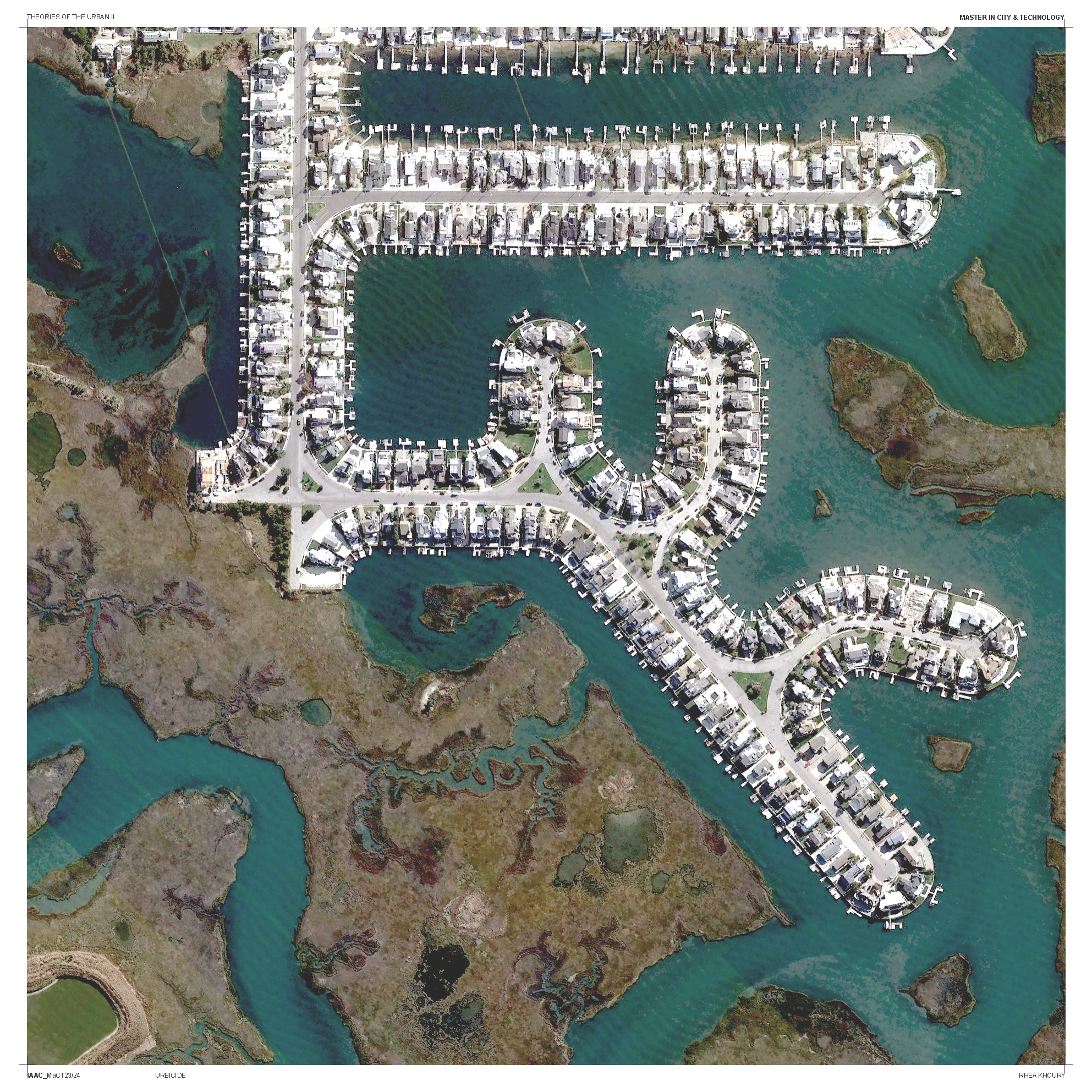
Resilience
Adapting and growing amid challenges not just bouncing back but questioning the direction, demanding genuine change over ‘greenwashed’ promises.
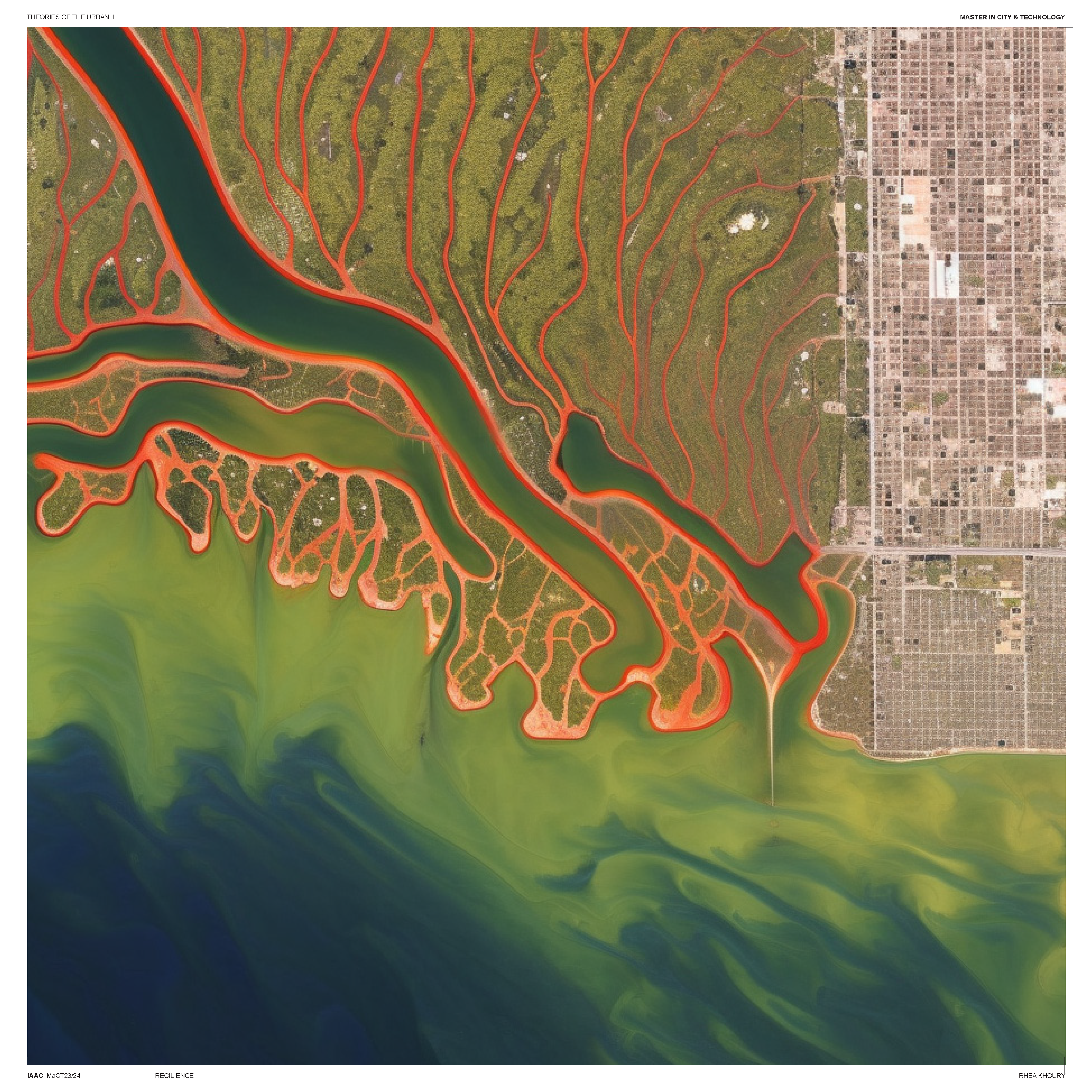
Blase Attitude
An urban dweller’s shield of indifference where the colorful diversity of life turns monochrome in the shadow of money’s uniformity.
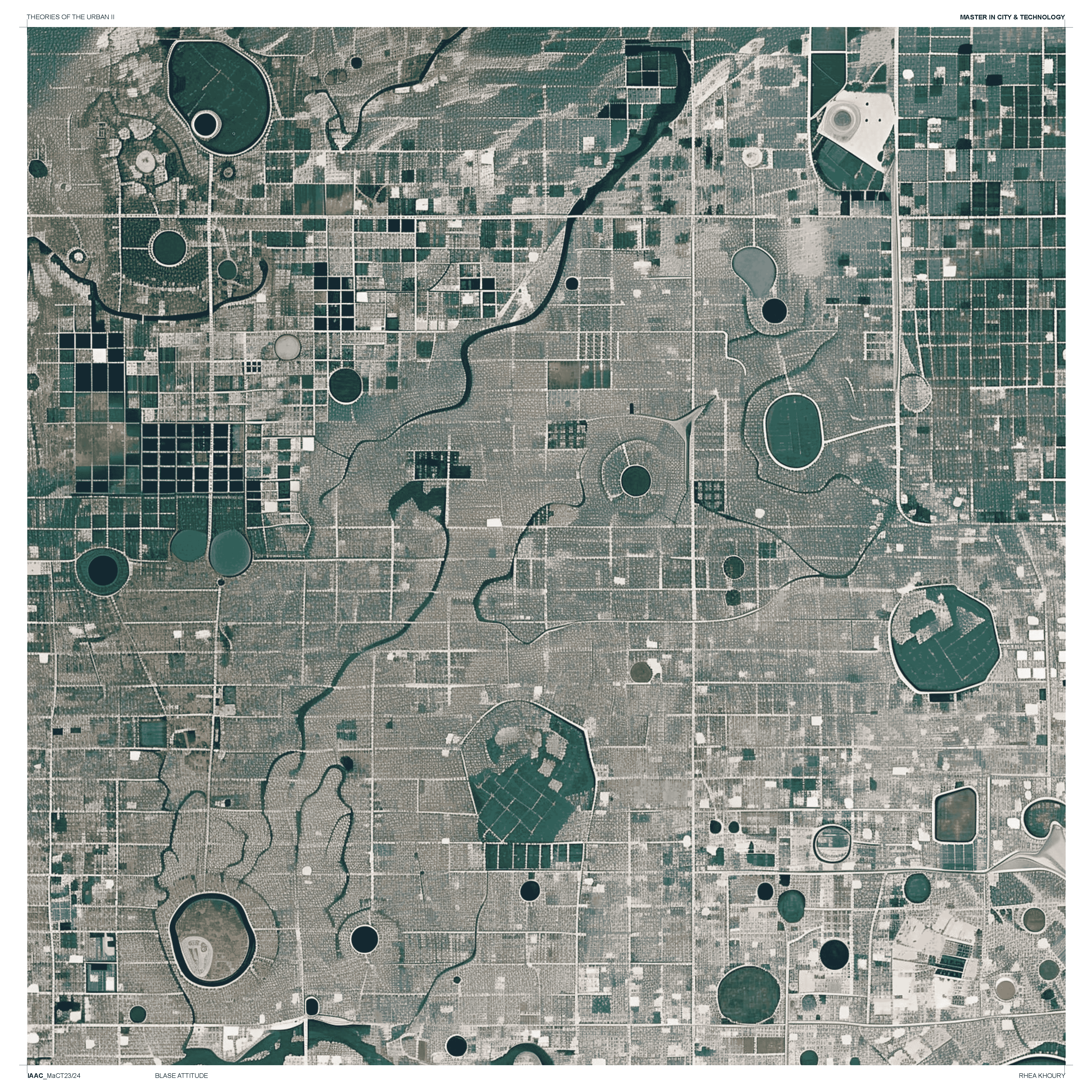
TIME-SPACE COMPRESSION
Capitalism’s swift dance where space shrinks and time speeds, reshaping politics, power, and culture in its relentless whirl.
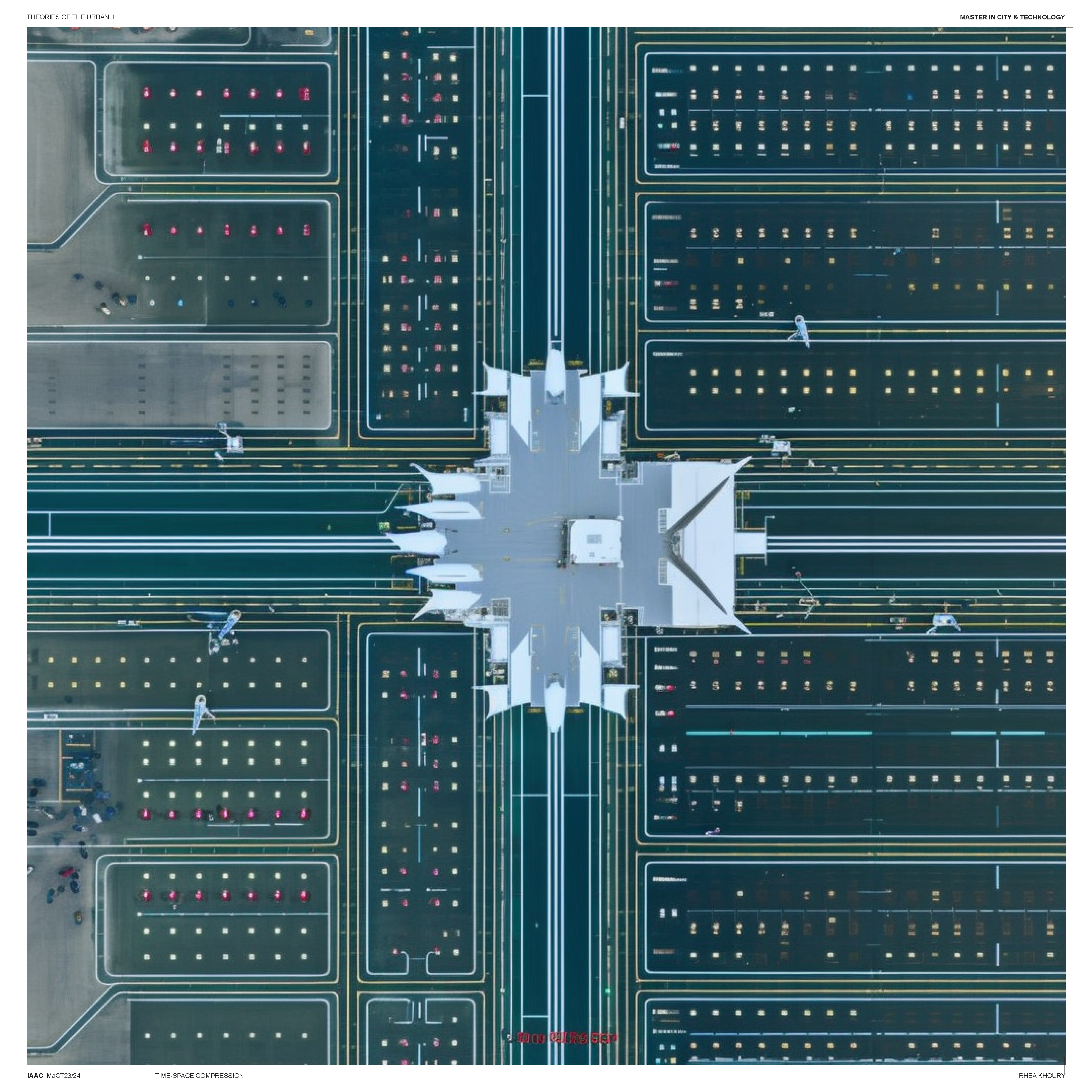
CYBORG
Merges machine, organism, and consciousness, challenging binaries and redefining liberation through blurred boundaries between fiction and reality, reimagining of social constructs and women’s experiences.
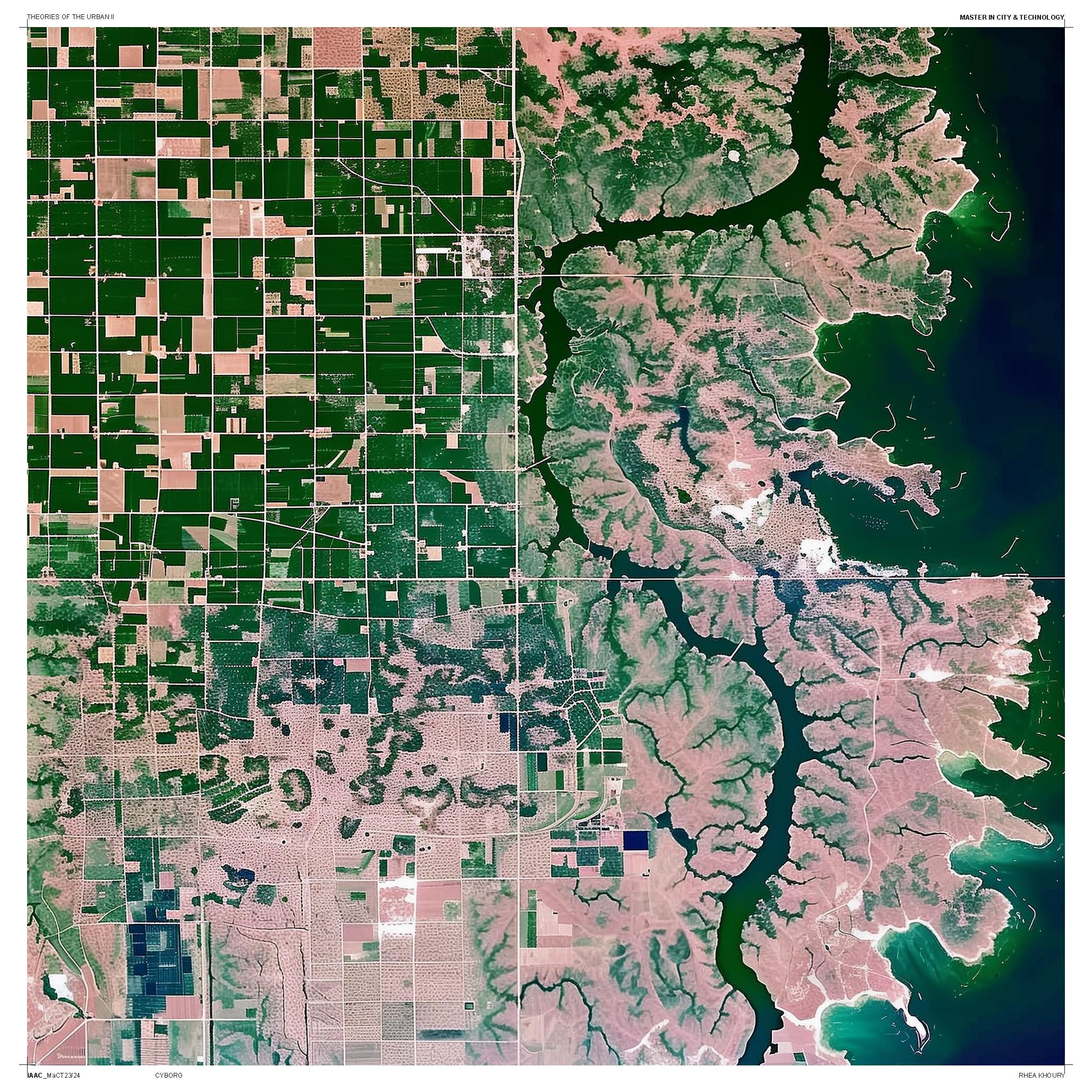
ALIENATION
The crucible of freedom demands embracing change and questioning the given, propelling us towards unfixed horizons and the labor of constructing liberty.
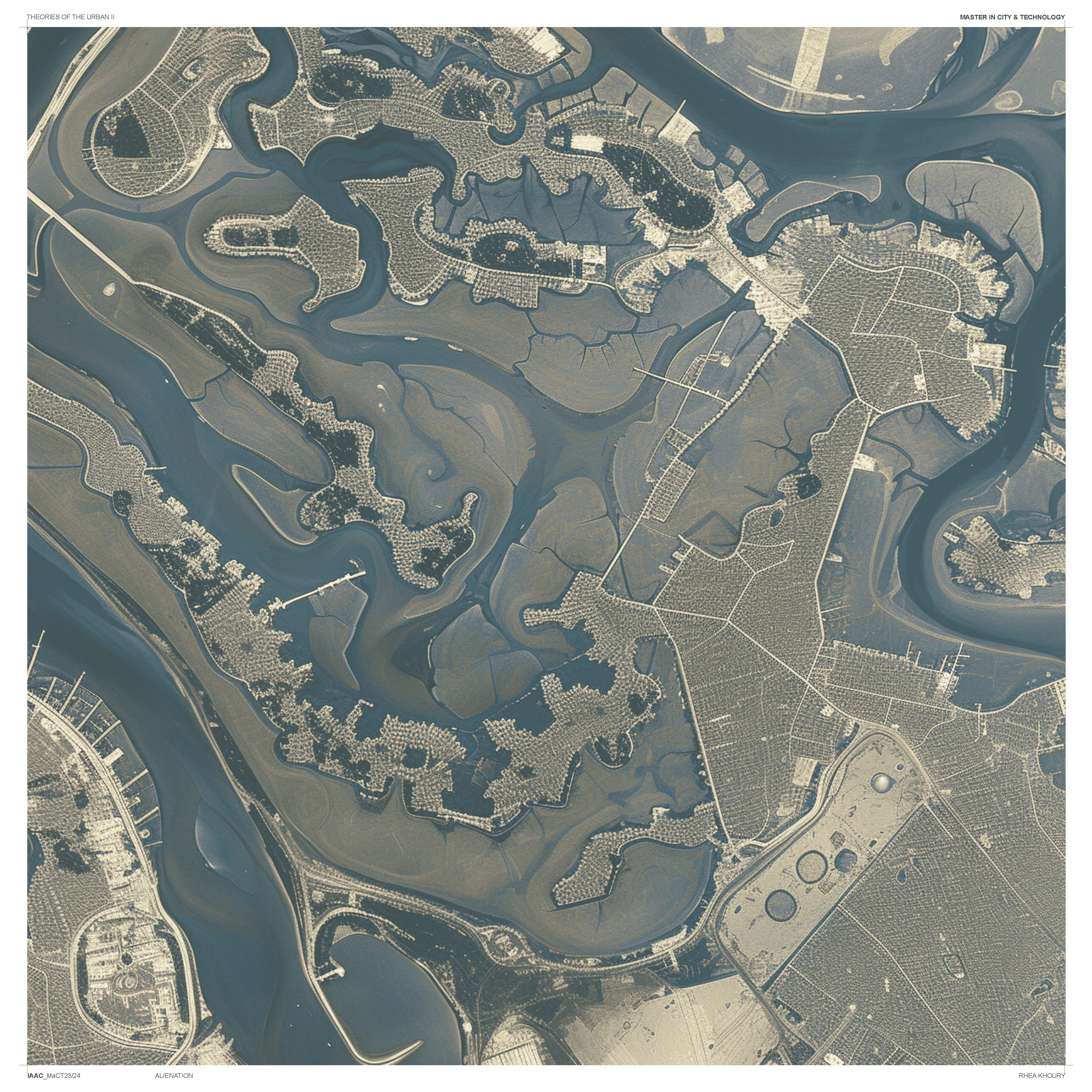
References
- Homework Economy: DONNA HARAWAY, “CYBORG MANIFESTO”
- Climate Justice: KIAN GOH, “CLIMATE JUSTICE AND URBAN FUTURES”
- Simulacrum: DAVID HARVEY, “TIME-SPACE COMPRESSION AND THE POSTMODERN CONDITION”
- Islandisation: S. WAKEFIELD, ”CRITICAL URBAN THEORY IN THE ANTHROPOCENE”
- Techno-Scientific Innovation: LABORIA CUBONIKS, “XENOFEMINIST MANIFESTO”
- Metropolitan Type: GEORG SIMMEL, “METROPOLIS AND MENTAL LIFE”

